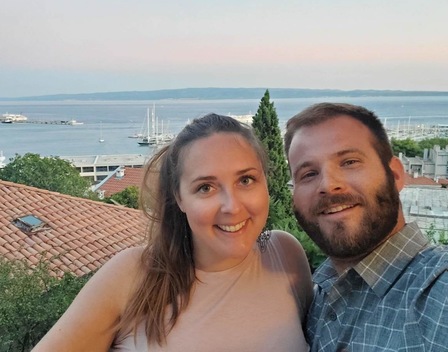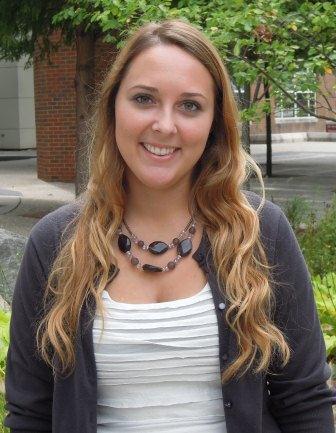JORDAN DIX
CAPSTONE
Capstone Project Committee: Kelly East, M.S., CGC; Kristy Lee, M.S., CGC; Scott Richter, Ph.D.; Randi Stewart, M.S., CGC
Background: Genetic counseling is a rapidly growing profession. Previous studies identified high school as an ideal time to present genetic counseling as a career option to increase the number of potential applicants, especially among ethnic minorities. To date there is little literature regarding the effect of increased education about genetic counseling upon level of interest in the profession.
Purpose: The goal of this study was to evaluate whether increased education about the genetic counseling field impacts career interest among high school students. We hypothesized that increased education about genetic counseling would increase students’ knowledge about genetic counseling and career interest.
Methods: An educational presentation and class activity were designed to provide high school students in the Middle College at UNCG with information about the genetic counseling profession. Pre- and post-lecture surveys were administered to assess knowledge and interest in genetic counseling. Paired samples t-tests were used to analyze the statistical significance of the related questions on the pre- and post-surveys. Responses to open-ended questions were analyzed to identify common themes.
Results: Eighty students participated in the study. Ninety-five percent reported their knowledge of genetic counseling increased and a statistically significant increase in students’ interest in genetic counseling as a career was noted (p<.001). Caucasian students felt more familiar with genetic counseling and pedigree construction after the educational intervention as compared with African Americans. Students interested in pursuing a genetic counseling career reported their ability to help and comfort others as the main reason for their interest.
Conclusion: Our results suggest that the educational intervention did increase the students’ knowledge about genetic counseling and career interest. Future research is needed to enhance the generalizability of our findings and determine if such educational interventions may be helpful to increase ethnic diversity in the profession.
Since Graduation

After graduation, Elizabeth moved to Duluth, MN to begin her career as a general clinical genetic counselor. While in Duluth, Elizabeth married her husband Brandon in an aquarium and adopted a yellow lab. After a year in clinic, Elizabeth relocated to Rochester, MN to accept a lab genetic counselor job at Mayo Clinic. Elizabeth has been working for the genomics lab at Mayo Clinic since 2015 and now works remotely from her hometown of Green Bay, WI. Elizabeth specializes in variant interpretation and report writing for molecular metabolic and mitochondrial testing.
Elizabeth currently lives in Green Bay, WI with husband, Brandon, a 3-year-old daughter (Ellie), and 1-year-old son (Benji).
